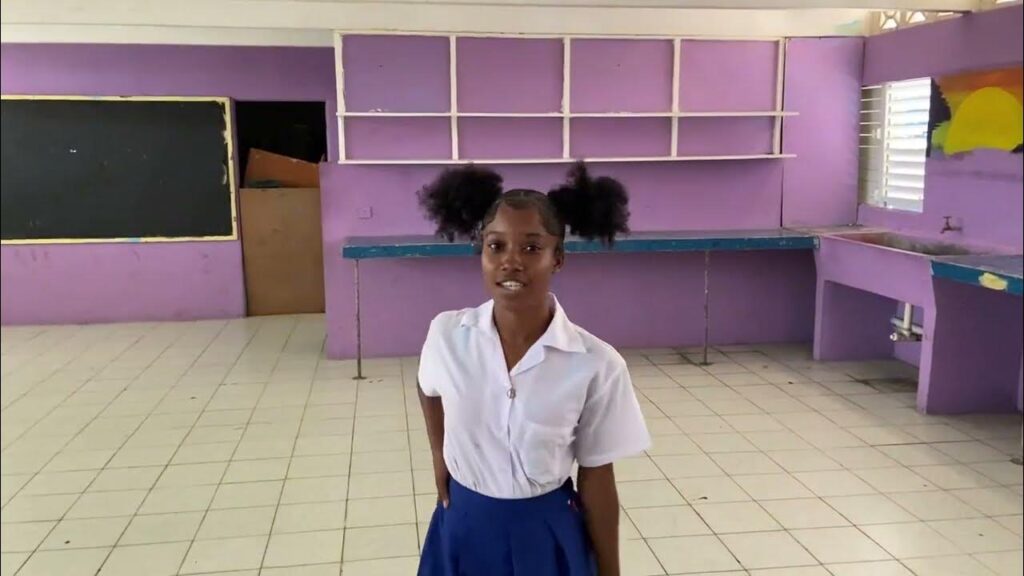
Navigating the Complex World of Middle School Girl Drama: A Comprehensive Guide
Middle school is often remembered as a pivotal, yet turbulent, period in life. For girls, this transitional phase can be particularly challenging due to the emergence of complex social dynamics and, often, the presence of middle school girl drama. This article aims to provide a comprehensive guide to understanding, navigating, and, when necessary, mitigating the effects of this often unavoidable aspect of adolescent life. We will explore the root causes, common manifestations, and practical strategies for parents, educators, and, most importantly, the girls themselves.
Understanding the Roots of Middle School Girl Drama
To effectively address middle school girl drama, it’s crucial to understand its underlying causes. Several factors contribute to the intensity and prevalence of social conflicts during this developmental stage:
- Hormonal Changes: Puberty brings significant hormonal shifts that can influence mood, emotions, and social interactions. Increased estrogen levels can contribute to heightened sensitivity and emotional reactivity.
- Social Hierarchy: Middle school is often a time when social hierarchies become more defined and influential. The desire for social acceptance and popularity can drive girls to engage in behaviors that perpetuate middle school girl drama.
- Insecurity and Self-Esteem: As girls navigate physical and emotional changes, they may experience insecurities about their appearance, abilities, and social standing. These insecurities can manifest as competitive behaviors and attempts to elevate their own status at the expense of others.
- Influence of Social Media: The pervasive influence of social media platforms exacerbates the problem. Online platforms provide avenues for cyberbullying, rumor spreading, and social comparison, contributing to the intensity and reach of middle school girl drama.
- Developmental Stage: Middle schoolers are in a unique developmental stage. They are no longer children, but not yet teenagers. They are learning about social cues, boundaries, and how to navigate complex relationships. This learning process often involves missteps and conflicts.
Common Manifestations of Middle School Girl Drama
Middle school girl drama can manifest in various forms, ranging from subtle social exclusion to overt acts of aggression. Recognizing these manifestations is the first step in addressing them effectively:
- Cliques and Exclusion: The formation of exclusive cliques is a common feature of middle school social life. Girls may exclude others based on perceived differences in appearance, interests, or social status, leading to feelings of isolation and rejection.
- Rumor Spreading and Gossip: The dissemination of rumors and gossip is a prevalent form of middle school girl drama. Spreading malicious rumors can damage reputations and erode trust, creating a hostile social environment.
- Backstabbing and Betrayal: Girls may engage in acts of backstabbing and betrayal to gain social advantage or undermine their rivals. This can involve sharing secrets, breaking promises, or forming alliances against others.
- Cyberbullying: The anonymity and reach of online platforms make cyberbullying a particularly insidious form of middle school girl drama. Girls may use social media to harass, humiliate, or threaten their peers, often with devastating consequences.
- Passive Aggression: Subtle forms of aggression, such as giving the silent treatment, making sarcastic comments, or rolling eyes, can be used to express disapproval or exert social control.
Strategies for Navigating Middle School Girl Drama
Navigating the complexities of middle school girl drama requires a multifaceted approach involving parents, educators, and the girls themselves. Here are some effective strategies:
For Parents:
- Open Communication: Create a safe and supportive environment where your daughter feels comfortable discussing her experiences and concerns. Listen without judgment and validate her feelings.
- Promote Self-Esteem: Help your daughter develop a strong sense of self-worth by encouraging her interests, celebrating her achievements, and emphasizing her positive qualities.
- Teach Assertiveness: Equip your daughter with the skills to assert herself in social situations, set boundaries, and stand up for herself and others. Role-playing scenarios can be helpful in practicing assertive communication.
- Monitor Social Media: Be aware of your daughter’s online activities and the potential risks of cyberbullying and social comparison. Encourage responsible social media use and establish clear guidelines.
- Model Healthy Relationships: Demonstrate healthy communication and conflict resolution skills in your own relationships. Your daughter will learn by observing your behavior.
For Educators:
- Create a Positive School Climate: Foster a school environment that promotes respect, empathy, and inclusivity. Implement anti-bullying programs and initiatives that address social aggression.
- Teach Social Skills: Incorporate social skills training into the curriculum to help students develop communication, conflict resolution, and problem-solving skills.
- Address Cliques: Be aware of the formation of exclusive cliques and intervene when they create a negative social environment. Encourage students to interact with a diverse group of peers.
- Promote Empathy: Help students develop empathy by encouraging them to consider the perspectives and feelings of others. Use literature, discussions, and role-playing activities to promote empathy.
- Intervene in Bullying Situations: Take a zero-tolerance approach to bullying and intervene promptly and effectively when it occurs. Implement consistent consequences for bullying behavior.
For Girls:
- Choose Your Friends Wisely: Surround yourself with friends who are supportive, respectful, and trustworthy. Avoid associating with people who engage in gossip, backstabbing, or other forms of middle school girl drama.
- Be Assertive: Stand up for yourself and others when you witness unfair or hurtful behavior. Use assertive communication to express your feelings and set boundaries.
- Don’t Participate in Gossip: Refuse to participate in spreading rumors or gossip. Change the subject or walk away from conversations that involve negative talk about others.
- Report Bullying: If you are being bullied or witness bullying, report it to a trusted adult, such as a parent, teacher, or counselor.
- Focus on Your Strengths: Cultivate your talents and interests and focus on your positive qualities. Building self-confidence will make you less vulnerable to the effects of middle school girl drama.
- Limit Social Media Use: Be mindful of the potential impact of social media on your self-esteem and social relationships. Limit your time on social media and be selective about the content you consume.
- Develop Healthy Coping Mechanisms: Find healthy ways to manage stress and emotions, such as exercise, journaling, or spending time in nature.
The Role of Technology in Amplifying Drama
Technology, particularly social media, plays a significant role in amplifying middle school girl drama. The anonymity and reach of online platforms can embolden individuals to engage in behaviors they might not otherwise exhibit in person. Cyberbullying, rumor spreading, and social comparison are rampant on social media, contributing to a toxic social environment.
Parents and educators must actively address the role of technology in middle school girl drama. This includes educating students about responsible social media use, monitoring their online activities, and establishing clear guidelines for online behavior. It’s also important to teach students how to identify and report cyberbullying and to develop critical thinking skills to evaluate the accuracy and reliability of information they encounter online. [See also: Cyberbullying Prevention Strategies for Schools]
Building Resilience and Fostering Positive Relationships
Ultimately, navigating middle school girl drama is about building resilience and fostering positive relationships. Girls who have a strong sense of self-worth, supportive friendships, and healthy coping mechanisms are better equipped to handle the challenges of this developmental stage. Encourage girls to develop their interests, pursue their passions, and connect with others who share their values.
It’s also important to emphasize the importance of empathy, compassion, and respect in social interactions. Encourage girls to treat others with kindness and understanding, even when they disagree. By fostering a culture of empathy and respect, we can create a more positive and supportive social environment for all middle school girls. [See also: Promoting Empathy in Middle School Students]
Conclusion: Empowering Girls to Navigate Social Challenges
Middle school girl drama is a complex and often unavoidable aspect of adolescent life. By understanding the root causes, recognizing common manifestations, and implementing effective strategies, parents, educators, and the girls themselves can navigate these challenges and create a more positive and supportive social environment. Empowering girls to develop self-esteem, assertiveness, and healthy coping mechanisms is essential for their well-being and success. While middle school girl drama may be a rite of passage for many, understanding its dynamics and equipping young girls with the right tools can help them navigate this challenging period with grace and resilience. The key lies in open communication, proactive intervention, and a commitment to fostering empathy and respect among peers. This comprehensive approach will not only mitigate the negative impacts of middle school girl drama but also contribute to the development of well-adjusted, confident young women. The prevalence of middle school girl drama underscores the need for ongoing support and education, ensuring that girls are equipped to thrive socially and emotionally during this formative period. Effective management of middle school girl drama necessitates a collaborative effort between parents, educators, and the girls themselves, fostering a culture of understanding and mutual respect. Addressing middle school girl drama head-on, with proactive strategies and open communication, can transform the middle school experience into a more positive and empowering journey for all involved.

